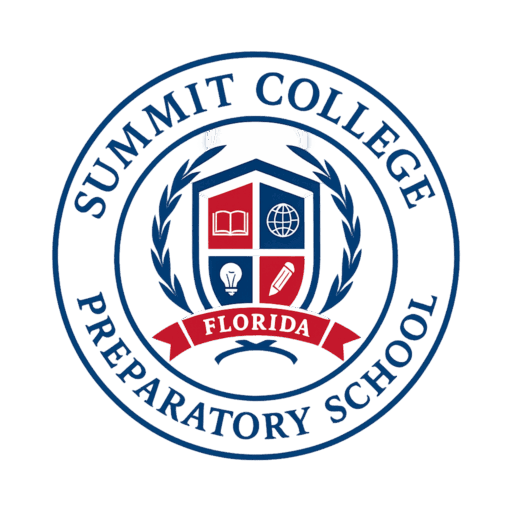English 11 Honors
Course Overview
English 11 Honors is an advanced, full-year English Language Arts course designed to develop students’ analytical, rhetorical, and compositional skills through the exploration of American literature. This course prepares students for success in college-level writing and standardized assessments such as the SAT and AP English Language and Composition. The curriculum incorporates Florida B.E.S.T. Standards and College Board readiness benchmarks.
Students engage with texts that span American literary movements—Puritanism, Romanticism, Realism, Modernism, and Contemporary periods. They study a range of genres including fiction, nonfiction, speeches, poetry, and memoir. Emphasis is placed on interpreting complex texts, analyzing author’s craft and rhetoric, synthesizing multiple sources, and composing argumentative, analytical, and research-based essays.
Each quarter focuses on critical questions regarding identity, freedom, justice, and the American Dream. Through rigorous reading, writing, and discussion, students strengthen skills in close reading, rhetorical analysis, academic argument, and research writing. Instruction includes Socratic seminars, peer review, guided annotation, and multimedia analysis.
By the end of the course, students will produce polished essays using MLA format, deliver persuasive oral presentations, demonstrate sophisticated control of grammar and syntax, and articulate insightful analyses of American literary texts. This course is a direct preparation for AP English courses and university-level expectations.
Learning Outcomes by Quarter
- Quarter 1: Analyze Puritan rhetoric and reflective writing, compose analytical essays, and compare early American narratives.
- Quarter 2: Evaluate transcendental and Romantic ideals, conduct thematic analysis, and present speeches on personal freedom.
- Quarter 3: Deconstruct satire and realism in post-Civil War literature, develop rhetorical analysis essays, and interpret political texts.
- Quarter 4: Conduct research on contemporary issues, write argument papers, and synthesize multiple literary and informational texts.
Instructional Methods
This course incorporates a mix of direct instruction, text-based inquiry, Socratic seminars, research workshops, and project-based learning. Differentiation and scaffolding support students of varying readiness levels. Assessments include timed writings, digital presentations, and group projects, with continuous formative feedback to guide improvement.
Assessment and Grading
| Category | Weight |
|---|---|
| Major Essays & Projects | 40% |
| Quizzes & Timed Writings | 20% |
| Class Discussions & Presentations | 15% |
| Research Activities & Journals | 15% |
| Homework & Participation | 10% |
Anchor Text Justification
- The Crucible – Explores mass hysteria, morality, and allegory; rich in rhetorical strategies and historical context.
- The Scarlet Letter – Offers complex symbolism and moral conflict ideal for analysis of theme and character development.
- Into the Wild – Provides modern nonfiction perspective on individualism and society, aligned with research writing goals.
- The Great Gatsby – Central to understanding the American Dream, motifs, and narrative style.
- Selected American Essays & Speeches – Includes works by Emerson, Douglass, Lincoln, MLK, and others for rhetorical analysis.
College Board – SAT Crosswalk
| College Board Domain | Integrated Skills in English 11 Honors |
|---|---|
| Command of Evidence | Support claims with textual references, evaluate sources, and analyze argument structure |
| Words in Context | Interpret nuanced language in historical and modern texts |
| Expression of Ideas | Strengthen coherence and clarity in essays and speeches |
| Standard English Conventions | Apply grammar and usage rules in edited and unedited writing samples |
Unit Overview
| Quarter | Unit Title | Florida B.E.S.T. Benchmarks | College Board Focus Skills |
|---|---|---|---|
| Q1 | Faith, Dissent, and Early American Voices | ELA.11.R.1.1, ELA.11.C.1.2 | Historical context, rhetoric, close reading |
| Q2 | Romanticism, Transcendentalism, and Reform | ELA.11.R.2.2, ELA.11.C.1.3 | Literary movements, author’s style, reflective writing |
| Q3 | Modern Voices and Satirical Lens | ELA.11.R.3.3, ELA.11.C.3.1 | Rhetorical devices, irony, social commentary |
| Q4 | Contemporary Issues and Argument | ELA.11.C.4.1, ELA.11.C.5.1 | Research, argument, synthesis, source evaluation |
Academic Vocabulary Matrix
| Category | Key Terms | Contextual Application |
|---|---|---|
| Rhetorical Strategies | Ethos, Pathos, Logos, Parallelism | Used in speech analysis and persuasive writing |
| Literary Analysis | Symbolism, Allegory, Tone, Diction | Applied in interpreting fiction and drama |
| Research & Style | MLA format, Plagiarism, Citation | Practiced in research essays and annotated bibliographies |
| Grammar | Modifiers, Verbals, Clauses | Applied in revising and editing activities |
